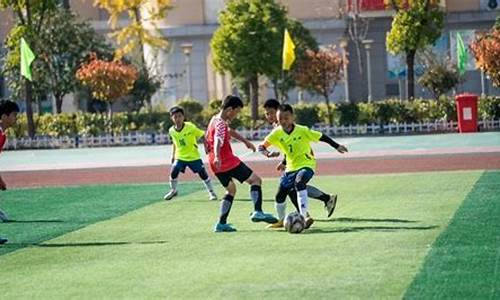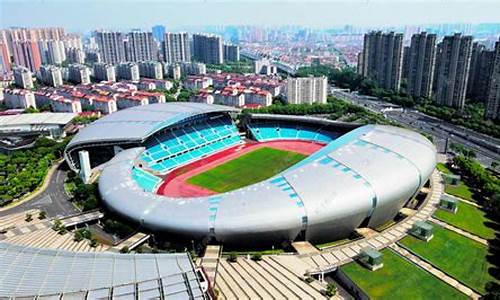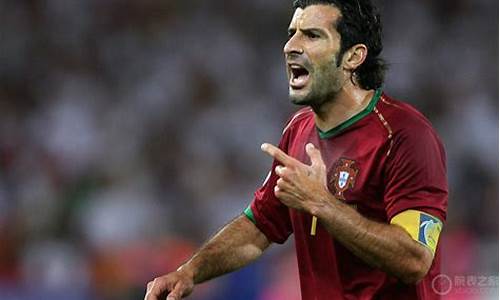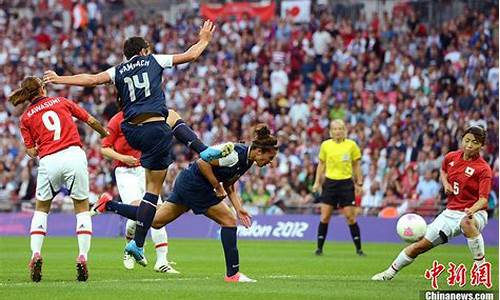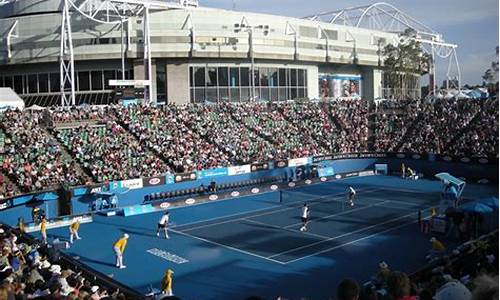奥运会发展史英语版,奥运会的起源与发展简介英语
1.谁能帮我把《奥运会的由来》翻译成英文!!急需!谢谢 我在线
2.现代奥运会起源 概要说明(英文,要简短)

追分80……楼主应该没这么大方吧
The Olynpic Games
The Olympic Games, first held in 776BC, has a history of more than one thousand yiars. The Games is held every four years.
Many countries try their best to bid forhosting the Olympic Games. And every country does its best to get more medals in the Games. In 2000, the city of Sidney held the 27th Olympic Games. Over one hundred countries all over the world took part in it. We won 28gold medals that year. China, a major sport country, will hold the 29th Olympic Games in 2008. People from all walks of life are participating in various activities and making good preparations for it.
There are five rings on the Olympic flag, which are considered to symbolize, the five continents: Europe, Asia, Africa, Australia and America. The Olympic motto is: "Swifter, higher, stronger." The Games can promote the understanding and friendship among different peoples and different nations.
奥林匹克运动会
公元前776年首次举办的奥运会,已经有一千多年的历史了。奥运会每四年举办一次。
许多国家尽他们最大的努力争办奥运会。每个国家在运动会中都争取拿更多的奖牌。2000年,悉尼举办了第27届奥运会,全世界100多个国家参加了这次盛会。那年我国获得了28枚金牌。中国作为一个体育大国,将于2008年举办第29届奥运会。各条战线的人们正在为奥运会做着各项准备。
奥运会的会旗上有五个环。五环被认为象征着五大洲:欧洲、亚洲、非洲、澳洲和美洲。奥运会的口号是:“更高,更快,更强。”奥运会能够促进各民族以及各个国家之间的理解和友谊
奥运会英文文章: international Olympic Committee constituted itself on 23rd June 1894.国际奥委会于1894年6月23日成立。
The Olympic symbol, the five interlocking rings, represents the union of the five continents and the meeting of the athletes of the world at the Olympic Games.奥林匹克的标志是五个相连的圆环,它代表着五大洲的团结和全世界运动员在奥运会上相聚一堂。
The official languages of the IOC are French and English.国际奥委会的官方语言是法语和英语。
The Olympic flame is a symbol reminiscent of the ancient Olympic Games.奥运圣火是人们缅怀古代奥运会的象征。
The Olympic Games consist of the Games of the Olympiad and the Olympic Winter Games. Both take place every four years.奥运会包括夏季奥运会和冬季奥运会,它们都是每四年举办一次。
The Olympic Games shall be proclaimed open by the Head of State of the host country.奥运会由东道国国家元首宣布开幕。
谁能帮我把《奥运会的由来》翻译成英文!!急需!谢谢 我在线
古奥运会从公元前776年起,到公元394年止,经历了1168年,共举行了293届。按其起源、盛衰,大致分为三个时期:
(1)公元前776年至公元前388年,公元前776年,伯罗奔尼撒的统治者伊菲图斯,努力使宗教与体育竞技合为一体。它不仅革新宗教仪式,还组织大规模的体育竞技,活动,并决定每4年举行一次。时间定在闰年的夏至之后。所以公元前776年的古代奥林匹克运动会就正式载入史册,成为古代奥运会的第1届。当时仅有一个比赛项目。即距离为192.27米的场地跑。
这一时期各城邦之间虽有纷争,但希腊是一个独立的国家,政治、经济、文化都较发达,是运动会的黄金时期。特别是公元前490年,希腊雅典在马拉松河谷大败波斯军之后,民情奋发,国威大振,兴建了许多运动设施、庙宇等,参赛者遍及希腊各个城邦,奥运会盛极一时,成为希腊最盛大的节日。
(2)公元前388年至公元前146年,开始衰落。由于斯巴达和雅典长期的伯罗奔尼撤战争(公元前431年至公元前404年),希腊国力大减,马其顿逐渐吞并了希腊。马其顿君王菲利普还亲制自参加了赛马。随后亚历山大帝虽自己不喜爱体育活动,仍积极支持,并视奥运会为古希腊的最高体育活动开幕式,为其增添设施。不过,这一时期古奥运会精神已大为减色,并开始出现职业运动员。
(3)公元前146年至公元394年,古奥运会由衰落走向毁灭。罗马帝国统治希腊后,起初虽仍举行运动会,但奥林匹亚已不是唯一竞赛地了。如公元前80年第 175届奥运会,罗马经济规律就把优秀竞技者召集在罗马比赛,而奥林匹亚只举行了少年赛。这时职业运动员已开始大量出现,奥运会成了职业选手的比赛,希腊人对之失去了兴趣。公元2世纪后,基督教统治了包括希腊在内的整个欧洲,倡导禁欲主义,主张灵肉分开,反对体育运动,使欧洲处于一个黑暗时代,奥运会也随之更趋衰落,直至名存实亡。公元393年罗马皇帝狄奥多西一世宣布基督教为国教,认为古奥运会有违基督教教旨,是异教徒活动,翌年宣布废止古奥运会。公元 895年,拜占廷人与歌德人的阿尔菲斯河发生激战,使奥林匹亚各项设施毁失殆尽。公元426年狄奥多西二世烧毁了奥林匹亚建筑物的残余部分。公元522、 511年接连发生的两次强烈地震,使奥林匹亚遭到了彻底毁灭。就这样顺延了1000余年的古奥运会不复存在了,繁荣的奥林匹亚变成了一片废墟。
古代奥运会比赛日程和项目
古代奥运会从第1届起, 决定每4年举行1次, 每届只举行1天。随着比赛项目的不断增多, 从第22届古代奥运会开始, 组织者决定将比赛时间改为3天, 加上开幕式、闭幕式及庆典活动, 整个会期为5天。竞赛项目增多为:五项全能(铁饼、标枪、跳远、角力、跑步)、拳击、摔跤、战车赛跑、赛马等。
古代奥运会自公元前776年第1届至公元前394年共举办了293届, 都是在古希腊奥林匹亚运动场举行。比赛场建在阿尔菲斯河谷北面的小丘旁。小丘经过修整成为看台,最初可容纳2万观众, 后扩大到4.5万人, 并设有160个贵宾席。比赛场长212米, 宽32米, 跑道长192.25米, 表面未经特殊处理, 起跑处铺大理石。赛场西南部有练习场, 用石柱廊围起 ,形成一院落。一侧建会议厅、更衣室和浴室等。这里还有一个770米×320米跑马场, 供赛马和马车比赛用。
古代奥运会处罚规则
古代奥运会的比赛规则十分严厉,违者要受到严厉的惩罚。这表现了他们的荣辱感。古希腊人认为,奥运会是神圣的,光明正大地取胜才是最光荣的。反之,则是对神圣事业的亵渎。
古代奥运会对弄虚作假者深恶痛绝。第90届古代奥运会上,一个名叫利哈斯的选手获得了冠军,他自称是斯巴达人,但经核实,他是另一个城邦的人,于是被取了名次。古代奥运会对于行贿受贿者更是严惩不贷,不仅要剥夺冠军的称号,还要罚重金以警世人,罚金则用于雕刻宙斯像。第98届古代奥运会上, 一拳击运动员因买通另外3名敌手取胜,结果4人皆被罚重金。古代奥运会的组织者用这4人的罚金雕刻了4尊宙斯像,其中一尊还刻上以下警句:奥林匹克的胜利不是可用金钱买来的,而需依靠飞快的两脚和健壮的体魄。
古代奥运会特色
古代奥运会有三大特色。第一, 古代奥运会是以祭神为主,内容丰富多彩, 是形式多样的全希腊综合盛会。包括祭祀天神宙斯,朝拜、祝寿众神、诗人朗诵作品演说家发表祝词、开展集市贸易等活动, 体育竞技仅作为其中的一项内容。第二古代奥运会是希腊各民族文化的一部分, 它起到了团结各族人民,维护国家统一, 减少和制止战争的积极作用, 与政治有着极为密切的关系。第三,由古希腊的风俗习惯、艺术风格、地理环境和物质生产等因素决定, "赤身运动"是它的一大特色。比赛时, 要求裸体的运动员全身涂上橄榄油, 以使身体在阳光的照射下熠熠生光 , 肌肉更富有弹性 ,更加显示出运动员健美的体态 ,使人们从中得到一种美的享受。
另外, 古希腊奥运会的规则规定:禁止女子参加和参观比赛,违反者要受到极刑处置。原因有二:一是古代奥运会的大部分比赛项目, 在相当长的时间内 ,要求运动员赤身裸体进行比赛,妇女到场有伤风化。二是古希腊的体育竞技 , 是宗教庆典内容之一, 是不允许妇女出席的。据说, 最初的古代奥运会参赛运动员是披着兽皮衣服进行比赛的。在一次比赛中 ,一身披狮子皮的选手, 不慎将狮子皮脱落到地上, 他顿时变成赤身裸体, 可他并未因此而影响自己的比赛。最后, 击败了对手, 夺得了橄榄冠。在这次意外的"事故"中, 人们发现裸体更能体现肌肉的健美 , 领略到了一种特殊的魅力,于 是规定以后一律进行赤身比赛。
赤身运动是古希腊文化艺术的独到之处,具有悠久的历史。古希腊历史上所说的"力的时代"就是指这一时期。这在古希腊雕塑家、艺术家的作品中均有所反映,他们的作品刻画的都是赤身裸体的人物。当时,肌肉发达,|健壮有力,被人们公认为是美的象征。
古代奥运会授奖仪式
古代奥运会的授奖仪式庄严而隆重。授奖台设在宙斯像前,橄榄冠放在一个特制的三脚台上。授奖时,先由报导官宣布运动员的姓名、比赛成绩、所属的城邦及运动员父母的名字。然后由司仪把优胜者领到主持人面前, 主持人起身, 将橄榄冠从三脚台上取下来, 给优胜者戴上。这时, 观众唱歌、诵诗、奏乐、欢呼,并向运动员投掷鲜花。古奥运会对获胜运动员的奖励, 虽曾多次改变,但原则都是着重于精神奖励。物质奖励也有, 但相当微薄。
以橄榄枝作为古代奥运会的精神,作为奥林匹克运动精神的象征, 寓意深刻, 影响久远。古希腊人认为,橄榄树是雅典保护神雅典娜带到人间的, 是神赐予人类和平与幸福的象征,因此用橄榄枝编织的橄榄冠是最神圣的奖品, 能获得它是最高的荣誉。据说,用于编织桂冠的橄榄枝必须得由一个双亲健在的12岁儿童, 用纯金刀子从神树上割下来, 然后精心编制。
在奥林匹亚举行的授奖仪式结束后,优胜者便可陆续还乡。这时, 各城邦还将为他们的优胜者凯旋归来而组织盛大的庆典活动。后来希腊还规定免去优胜运动员对国家的义务,在剧场或节日盛会上为他们设置荣誉座位, 个别城邦还发给有功绩的运动员终身津贴。
奥运会历史
古代奥运会的圣火
古代奥运会召开前,依照宗教规定人们聚集在奥林匹亚宙斯神庙前,举行庄严肃穆的仪式,从祭坛点燃火炬,然后奔赴希腊各个城邦。火炬手高举火炬,一边奔跑, 一边呼喊:停止一切战争,参加运动会!火炬像一道严格的命令,有至高无上的的权力,火炬到哪里,哪里的战火就熄灭了。即使是在激烈厮杀的城邦也都纷纷放下武器,神圣休战开始了。希腊又恢复了和平的生活,人们忘记了仇恨, 忘记了战争, 都奔向奥林匹亚参加奥林匹克运动会。
The games were held every four years during August and September and the word "Olympiad", which referred to the four year intervals between competitions, was commonly used to measure time. The first documented Olympic champion was a man named Coroebus, a cook from Elis who won the sprint race in 776 BC. Historians believe that the games had already existed for at least 500 years prior to that date. The Olympic Games originally featured only one event: a race called the "stade", equal to a distance of about 210 yards. By 728 BC two additional races had been added, comparable to the 400 meter and 1,500 meter races of the modern games. The Olympics came to include wrestling, boxing and the pentathlon, as well as specialized events for soldiers and heralds. It was only in 472 BC that the events were spread out over a period of four to five days, previously they had all taken place on a single day.
Participation in the Olympic Games was originally limited to free born Greeks, but as Greek civilization was spread by the conquests of Alexander the Great, the Games drew entrants from as far away as Antioch, Sidon and Alexandria. While the only official prize was a wreath or garland, successful athletes were supported by the governments of their cities and devoted much time to training. Most of the competitors were, in fact, professionals. After the Roman conquest of Greece in the second century BC, the Olympic Games suffered a decline in popularity and importance, but the Games persisted until AD 393, when the Roman emperor Theodosius I ordered their abolition.
The idea of reviving the Olympic Games originated with Baron Pierre de Coubertin, a 29 year old French aristocrat who first publicly raised the issue in 1892. At a conference on international sport held in Paris in 1894, Coubertin managed to convince delegates from 49 organizations representing nine countries to vote in favor of an Olympic revival. His chief allies in this effort were Dimitrios Vikelas of Greece and Professor William M. Sloane of the United States. The organizers had planned the first modern Olympics for 1900 in Paris, but later decided to move the date forward to 1896 and to change the venue to Athens, though the local government of the Greek capital was initially hostile to the idea. Coubertin and his colleagues of the newly formed International Olympic Committee eventually prevailed, and the first Olympic Games of the modern era were inaugurated by the King of Greece in the first week of April 1896.
The Games of 1896, 1900 and 1904 were loosely organized and did not feature national teams produced by rigorous selection. The 1908 Games, held in London in a newly built 66,000 seat stadium, were the first where the events were organized by the relevant authorities in each athletic discipline. More than 2,000 athletes from 22 nations competed in 100 events. The 1912 Olympic Games in Stockholm drew more then 2,500 competitors from 28countries and featured the first women's swimming events. No Games were held in 1916 due to World War I, but the Games enjoyed strong growth after the war, with 44 nations participating in the 1924 Olympics in Paris. At the1928 Games in Amsterdam there were more than 290 women among the 3,000athletes, more than double the number that took part in 1924. The Olympic Games were suspended again for 12 years because of World War II, resuming in 1948 in London. The post-war era saw steady growth in the number of countries and athletes competing and a dramatic increase in women's events.
Politics began to intrude on the Games in a serious way at the 1972 Olympics in Munich, where Palestinian terrorists attacked Israeli athletes in the Olympic Village. Sixty nations boycotted the 1980 Moscow Olympics to protest the Soviet invasion of Afghanistan, while the Soviets and some of their allies retaliated by declining to take part in the 1984 Games in Los Angeles. The end of the Cold War has eliminated the largest source of political conflict, and most Olympic controversies in recent years have centered on accusations
奥运会是每四年举行一次,在8、9月间将"奥林匹克",其中提到,间隔四年比赛,通常是用来衡量时间. 奥运冠军是第一个有记载的姓Coroebus,从厨师伊菲托斯短跑竞赛曾获776BC. 历史学家认为,游戏中至少已有500年前那一天. 原来只有一个突出的奥运事件:比赛称为"高速",相当于约210码的距离. 由公元前728增加了两个新赛事,相当于400米和1500米比赛的现代游戏. 悉尼奥运会将是摔跤,拳击赛,以及专门为军人和活动预告. 直到472BC,分散活动为期4至5天,他们以前都在一天内发生.
参加奥运会原本只限于希腊人没有出生,但希腊文明的传播是时代的亚历山大大,请游戏者远从Antioch,亚历山大和西顿. 而正式比赛只获得了花圈或推断,由运动员成功的城市,政府投入大量的时间来训练. 大部分选手实际上人才. 在罗马征服希腊在公元前二世纪,奥运下降欢迎和重视,但游戏持续到393广告时,我信奉罗马帝国皇帝下令取消.
复兴奥运会的设想源于顾拜旦男爵Pierrede,Aristocrat29岁的法国人在1892年首次公开提出这个问题. 在国际体育会议在巴黎举行的1894年,顾拜旦设法说服来自9个国家的49个组织的代表在表决奥运复活. 他在这方面的主要盟友都不能容忍教授WilliamM.斯维克拉斯希腊和美国斯隆. 主办单位原计划首批1900年奥运会的巴黎,但后来决定将提交日期1896年,地点改为雅典,但地方政府的希腊首都最初设想的敌对. 顾拜旦和他的同事们在新成立的国际奥委会最终胜利,第一,现代奥运会开幕的希腊国王在1896年4月的第一个星期.
1896年的奥运会、1900年和1904年的特点是组织松散,没有严格的选拔产生的国家队. 1908年的比赛中,在伦敦举行的一个新建的体育场66000席,是首次举办的活动,有关部门在每个运动员的纪律. 来自22个国家的2000多名运动员参赛,100事件. 1912年在斯德哥尔摩举行的奥运选手28countries提请就有2500头,包括妇女游泳活动. 比赛是在1916年没有因为我的世界战争,而是享受游戏战后强劲增长,有44个国家参加1924年奥运会在巴黎举行. 在阿姆斯特丹the1928游戏有超过290名女运动员之一,人数增加一倍以上,1924年参加. 奥运会中断了12年再次因第二次世界大战于1948年在伦敦开. 战后时代看到了稳步增长,一些国家的运动员有竞争和急剧增加妇女的事件.
政治游戏开始进犯以认真的态度在1972年慕尼黑奥运会上,巴勒斯坦恐怖分子袭击以色列运动员在奥运村. 1980年60个国家抵制莫斯科奥运会,抗议苏联入侵阿富汗,苏联和一些盟国的报复拒绝参加1984年在洛杉矶比赛. 冷战的结束消除政治冲突的最大来源,近年来争议最奥林匹克中心指控
福娃 Mascot
Beijing 2008: meet the mascots
A cartoon panda and Tibetan antelope(藏羚羊)are the newest Olympic players. They were among five mascots introduced last Friday for the 2008 Summer Games.
The announcement(宣布) was made at a nationwide gala(庆典), marking the 1,000-day countdown(倒数计时) to the event.
The Five Friendlies
The five mascots are called the Five Friendlies. They are a panda, fish, Tibetan antelope, swallow(燕子) and the Olympic flame(火焰). Each mascot the color of one of the Olympic rings, they also represent the sea, forests, fire, earth and air.
The Five Friendlies are called “Beibei,” “Jingjing,” “Huanhuan,” “Yingying” and “Nini,” which together mean “Beijing Huanying Ni” or in English – “Welcome to Beijing”.
The Five Friendlies will join the games slogan(口号) “One World, One Dream” and running man symbol which looks like the Chinese character for “capital.”
The Five Friendlies is the most number of mascots any Olympic Games has had in more than 30 years. The Salt Lake City and Sydney Games both had three.
现代奥运会起源 概要说明(英文,要简短)
History of the Olympic Games
Pindar, the Greek poet wrote in the 5th century BC:"As in the daytime there is no star in the sky warmer and brighter than the sun, likewise there is no competition greater than the Olympic Games.
According to historic records, the first ancient Olympic Games can be traced back to 776 BC. They were dedicated to the Olympian Gods and were staged on the ancient plains of Olympia. Initially they had a religious character and combined a number of ancient sporting events, many of which were based on ancient Greek myths.
The ancient Games actually occupied an important position in the life of the Greek ancestors. An Olympiad was a time unit, measuring the four-year interval between two Games. Participants came to compete from every corner of the Greek world aiming at the ultimate prize: an olive wreath and a "heroic" return to their city-states. But apart from the glorious victory, it was the Olympic values themselves which accorded special meaning to the Games: noble competition and the effort to combine body, will, and mind in a balanced whole.
As the Games developed, so did a set of procedures such as a standardized schedule of events and the practice of the Olympic Truce. They continued for nearly 12 centuries, until Emperor Theodosius decreed, in 393 AD, that all such 'pagan cults' be banned. He asserted that the Games placed an excessive public focus on athletic and spiritual affairs. The games was abolished until the 19th Century. Intellectuals such as Evangelos Zappas and Demetrios Vikelas who believed in the spirit of noble contests and the Olympic ideals, lent their voices and efforts to the revival of the Olympic Games.
However, it was French Baron Pierre de Coubertin who orchestrated the re-establishment of the Games, by advocating the marriage of sports and Greek classicism, leading the way to the first Modern Olympic Games in 1896.
The Greek public embraced the revival, and joined the efforts to organize the Games. Any financial difficulties faced by the Greek state at the time, were met through the mobilization of people and benefactors alike. The marble renovation of the ancient Panathinaikon Stadium that hosted the first modern Games was financed by George Averoff, a Greek benefactor from Northern Greece.
With the revival of the Olympic Games, a number of symbolic Olympic Traditions were also developed and established (i.e. the Olympic Anthem, the Olympic Creed, the Olympic Flag, the Olympic Flame and Torch).
Over the years, the Olympic Games traveled to different countries and continents, and now finally in 2004, they returned to the country of their birth and the city of their revival for the hosting of the XXVIII Modern Olympic Games.
公元前五世纪的希腊抒情诗人品达曾写道:“正如在白天天空中没有星星比太阳更温暖,更明亮,同样,没有比奥运会更激烈的比赛。
据历史记载,第一届古代奥运会可以追溯到公元前776年,为纪念奥林匹亚神在奥林匹亚的古代平原上举行。起初他们信仰宗教并综合了许多古代运动项目,其中很多都源于古希腊神话。
古代奥运会在古希腊人的生活中占据了很重要的地位。奥运会每四年举行一届,来自希腊各地的参赛者参与角逐,目标就是最终奖赏:一个橄榄花圈和“英雄”般的返乡。除去胜利的光荣,奥林匹克价值本身赋予了奥运会特殊的意义:高尚竞争,把身体、意志和精神平衡的结合于一体。
随着奥运会的发展,一系列程序,如标准化的项目时间表和奥林匹克休战的实践也在完善。这样持续了近 12个世纪,直到西奥多斯大帝在公元393年颁布法令,取缔所有“异教徒”。他宣称,奥运会使公众过于注意运动及精神。 18世纪,奥运会被废止。知识分子们,如塞帕斯和维克拉斯,坚信高尚比赛的精神和奥林匹克理想,为复兴奥运会而努力奔波。
法国人顾拜旦通过提倡运动和希腊古典主义的结合,使奥运会复兴起来,为1896年第一届现代奥运会的举行铺平了道路。
希腊民众迎接了奥运会的复兴,并努力组织起了这次奥运会。当时希腊政府所面临的资金难题,都被人民和捐助者所解决。举行第一届现代奥运会的古潘那斯那康体育场,其大理石更新便是由来自希腊北部的捐助者艾沃奥夫资助的。
随着奥运会的复兴,形成了很多具有象征意义的奥运会传统,如奥林匹克 会歌、奥林匹克格言、奥林匹克旗、奥林匹克火焰和火炬。
经过许多年,奥运会旅行了许多不同的大陆和国家,今年,也就是2004年,她回到了自己的出生地,回到了当年复兴的城市,举行第 28届现代奥运会。
The ceremonial fire stems from the ancient Greece myth fable. Hands down ancient Greece god Prometheus for the humanity which rescues suffers hunger and cold, hides the truth from Zeus to steal the kindling material belt to the world. The ancient Greece before each Olympic Games are held, the people must light the ceremonial fire before the Hera temple. After the modern Olympic Games establish, when the ceremonial fire is lit that flash, this Olympic Games ceremonial fire's transmission was the announcement complete conclusion. Along with Olympic Games' conclusion, this Olympic Games ceremonial fire will also be extinguished. The first torch relay activity was Berlin Olympic Games starts from 1936
圣火起源于古希腊神话传说。相传古希腊神普罗米修斯为解救饥寒交迫的人类,瞒着宙斯偷取火种带到人间。古希腊在每届奥运会举行以前,人们都要在赫拉神庙前点燃圣火。现代奥运会创立后,当圣火被点燃的那一刹那,本届奥运会圣火的传递活动即宣告圆满结束。随着奥运会的结束,本届奥运会圣火也将被熄灭。第一次火炬接力活动是从1936年柏林奥运会开始的。
声明:本站所有文章资源内容,如无特殊说明或标注,均为采集网络资源。如若本站内容侵犯了原著者的合法权益,可联系本站删除。

